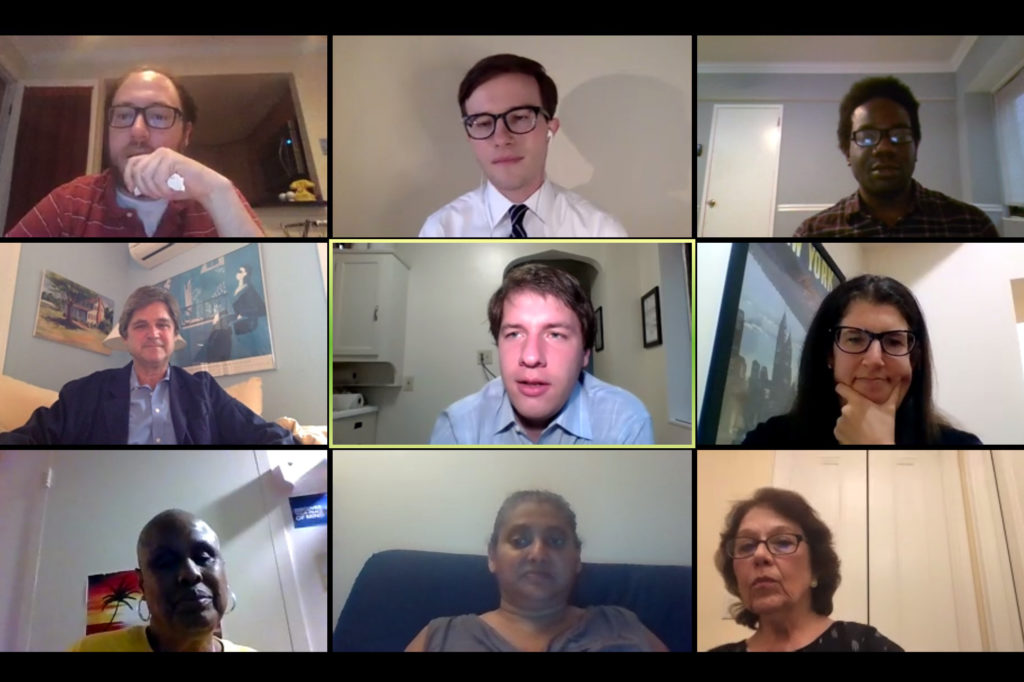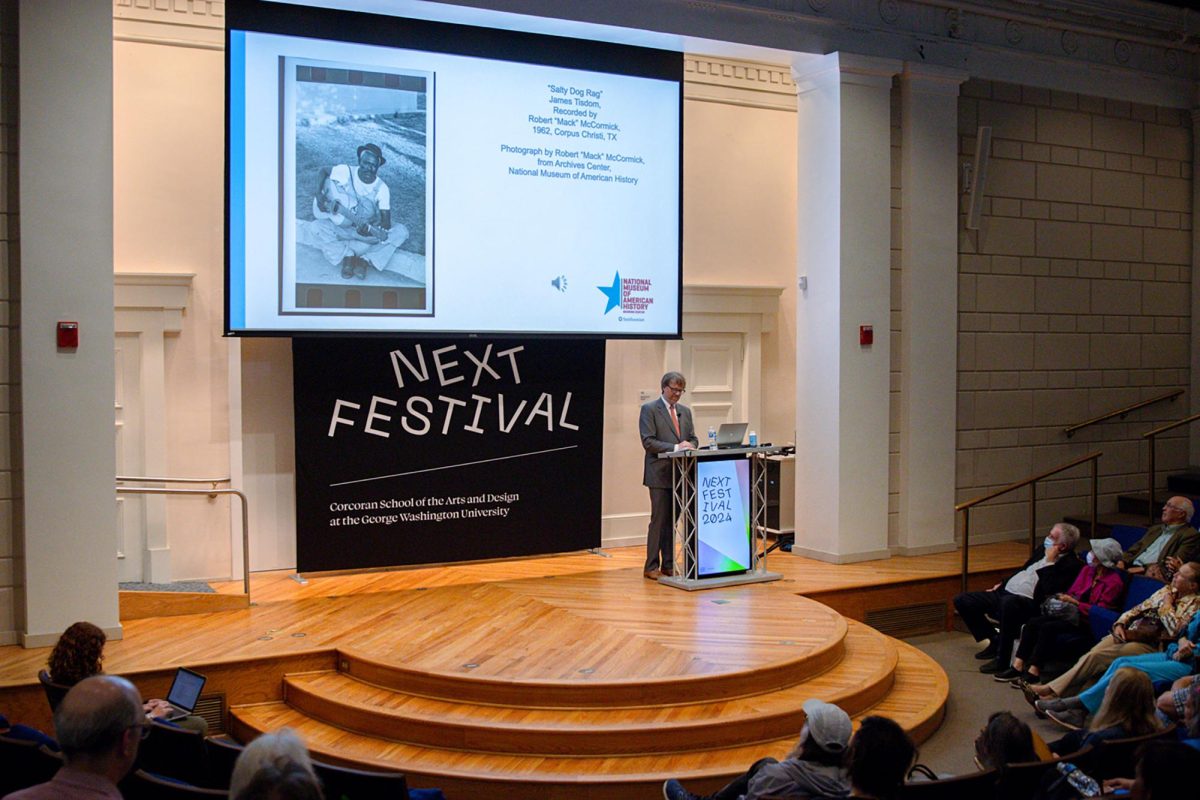Updated: June 22, 2020 at 9:43 p.m.
A local governing body voted to cut funding for the Metropolitan Police Department and invest in other resources like public housing and education at its meeting Wednesday.
The Foggy Bottom and West End Advisory Neighborhood Commission passed legislation calling on the D.C. Council’s Committee on the Judiciary and Public Safety to redirect part of the $540 million in annual funding proposed for MPD in Mayor Muriel Bowser’s Fiscal Year 2021 budget. The vote came after an outpouring of citywide demonstrations protesting racism in America’s policing systems and calling on the Council to defund the MPD to begin tackling issues that have intensified racial discrepancies for years.
The commission also voted to assist authorizing the University’s reopening plans and discussed a series of road closures that would allow students to socially distance more freely on campus.
Here are some of the highlights:
MPD budget
The commission voted to urge the Council’s judiciary and public safety committee, which has received testimony from more than 16,000 witnesses, to redistribute MPD funding in FY 2021 with five votes in favor and one abstention. Two commissioners were not present for the vote.
The ANC agreed to reallocate the department’s funding to other public sectors that could begin to address “those experiencing homelessness or mental health crises” in the city, according to the resolution.
Commissioner Jeri Epstein voiced disagreement with the resolution, urging that the resolution should include more analysis and data to explain why the commission wants to recommend the Council defund the police department. She said the vote would imply the commissioners didn’t support the officers who report updates at meetings and serve the Foggy Bottom community.
“I just don’t see enough here other than a going along with social justice for the sake of going along with social justice,” she said.
Commissioner Detrick Campbell, the commission’s secretary, said people displeased with the namesake or idea of defunding the police “are completely missing the point” and lack the sympathy and empathy to understand struggles Black people like himself face.
“The cause for social justice just for social justice – that is always the case,” he said. “That should always be your intent. You should always be willing to make something better or improve the lives of others even if it doesn’t affect you.”
University reopening plan
The commission voted to participate in the city’s decision-making process that would approve the University’s reopening plans for the fall 2020 semester. Commissioners unanimously passed a resolution authorizing vice chair and senior James Harnett and commissioners Campbell and Epstein – each of whom preside over a portion of GW’s campus – to provide feedback and suggestions to the University, the D.C. Office of Planning and the Department of Health for reopening plans.
The University submitted its reopening proposal to D.C. officials Monday, outlining plans to enforce mask-wearing in classrooms, limit class sizes and identify space for students who need to self-isolate after contracting the coronavirus.
Harnett said the ANC’s discussions with Kevin Days, the University’s community relations director who presented part of the reopening plans at the meeting, have helped the local community stay involved with the ongoing plans to reopen in the fall.
“I wanted to make sure we had put in a formal request so that we could continue our conversations with Kevin in the fruitful way that we have in the last week and make sure that over the next few weeks we continue to be part of those conversations and be able to provide comments, recommendations and ideas to the Office of Planning,” Harnett said.
Days said the University is seeking “temporary relief” from two provisions outlined in the 2007 Foggy Bottom Campus Plan, which regulates the number of beds required for undergraduate students. He said University officials are trying to implement a “de-densification” plan, which would house students who test positive for COVID-19 at a facility off campus and cut the percentage of enrolled students living in residence halls below the 70 percent minimum that the campus plan requires.
He said the figure will dip below 70 percent because of the anticipated drop in enrolled students on campus. Days said he expects the D.C. Zoning Commission to schedule a public hearing soon to discuss the University’s reopening plans and requests.
“By de-densifying our beds, we are spreading our students across all the housing stock,” he said. “We simply don’t have space on campus to create a quarantined and isolated space.”
Foggy Bottom sidewalk extensions
Harnett introduced a resolution that commissioners will vote on next month, outlining a series of road closures and sidewalk extensions through campus to enable better social distancing in Foggy Bottom. The legislation would block the roadways running through campus on H, G and F streets and install sidewalk extensions on 19th, 20th, I, H and E streets.
Epstein said the plans neglect neighborhood residents who commute through campus and requested the commission hold another meeting discussing the plan more thoroughly.
“It’s hard to believe that the rights of the people who’ve lived in Foggy Bottom for 50 years are going to be taken away for a transient group of people who’ll be here for two, three or possibly four years,” she said.
Commissioners announce resignations
Patrick Kennedy, the commission’s chair, said he would be stepping down from his position leading the commission, and Campbell announced he would be stepping down as commissioner this summer. Kennedy said Wednesday’s meeting would be his last as chair, and Campbell said he would serve his final meeting in July.
Harnett will act as the temporary chair until the July meeting, where the commissioners will elect a permanent chair.
The post has been updated to correct the following:
The Hatchet incorrectly reported that Patrick Kennedy will be resigning from the commission entirely. He is stepping down as chair but will keep his commissioner role. We regret this error.






